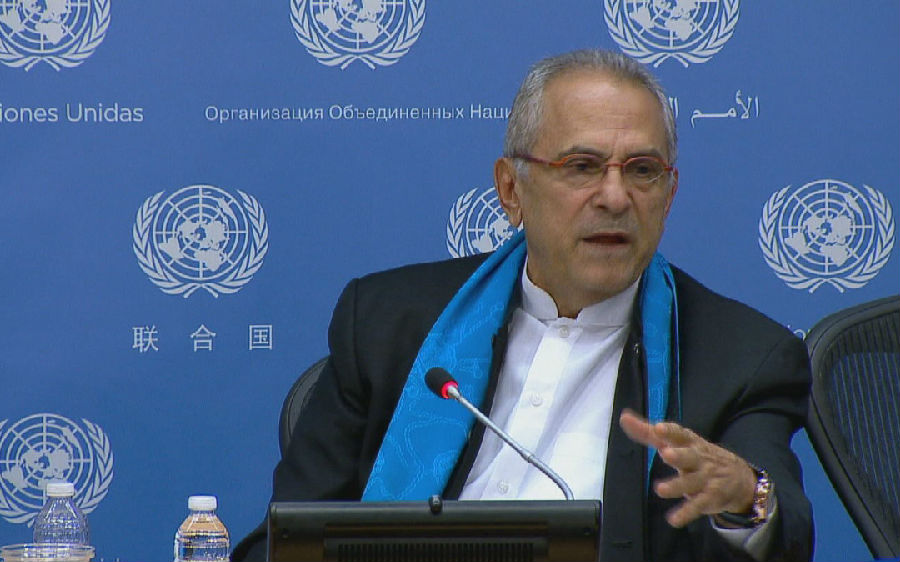Jose Ramos-Horta (born 1949) is the second Prime Minister of East Timor and a Nobel Peace Prize winner. He has spent most of his life fighting for and serving his people. He was a founder of a group that fought against the Indonesian occupation of his country between 1975 and 1999. He was injured in an assassination attempt in 2008.
喬斯·拉莫斯·霍塔(出生于1949年)是東帝汶第二任總理,也是諾貝爾和平獎得主。他將自己的大部分時間用在服務(wù)民眾,為民眾謀取權(quán)益上。1975-1999年,他領(lǐng)導“脫印”組織。2008年,霍塔遭遇刺受傷。
Ramos-Horta was involved in politics from a young age. When he was 25, he became Foreign Minister of the "Democratic Republic of East Timor". Three days after he arrived in New York to talk about independence for his country, Indonesian troops invaded and took over East Timor. He pleaded with the UN Security Council to end Indonesia’s occupation, in which 102,000 East Timorese died.
霍塔從年輕時候就開始涉入政壇。25歲那年成為東帝汶民主共和國外交部長。繼任三天后,他前往紐約談?wù)摉|帝汶獨立,印尼軍攻占以及占領(lǐng)東帝汶。他請求聯(lián)合國安理會結(jié)束印尼占領(lǐng),在這場戰(zhàn)役中,10.2萬名東帝汶人陣亡。

Ramos-Horta travelled the world for two decades to raise awareness of what was happening in East Timor. He often had hardly a penny in his pocket and relied on the goodwill of well-wishers. He got the Nobel Prize in 1996 for his "sustained efforts to hinder the oppression of a small people”. Several years later, East Timor would be free.
霍塔周游世界二十載,目的是要提高人們對東帝汶的認識。他通常是身無分文,依靠好心人的捐助過活。霍塔為反抗少數(shù)人壓迫做出了不懈努力,并于1996年授予諾貝爾獎。多年后,東帝汶重獲自由。
Ramos-Horta played a key role in negotiating East Timor’s independence. He became his nation’s first Foreign Minister in 2002 when East Timor joined the United Nations. He resigned from this post in 2006. A day later, the Prime Minister resigned, which led to political chaos. Ramos-Horta became Prime Minister two weeks later to end the turmoil. He became President of East Timor in 2007.
在東帝汶獨立問題上,霍塔起到了至關(guān)重要的作用。2002年,東帝汶加入聯(lián)合國,并當選首位外交部長。2006年卸任。而就在一天之后,東帝汶總統(tǒng)辭職,政壇一片混亂。為結(jié)束政治動蕩,霍塔在兩周后當選總理。2007年當選東帝汶總統(tǒng)。
譯文屬可可英語原創(chuàng),未經(jīng)允許,不得轉(zhuǎn)載。












